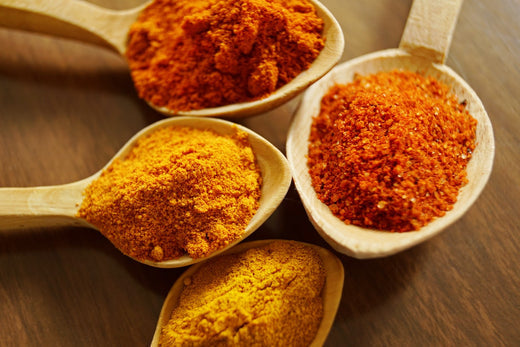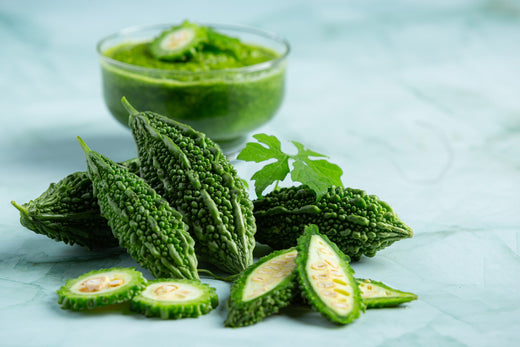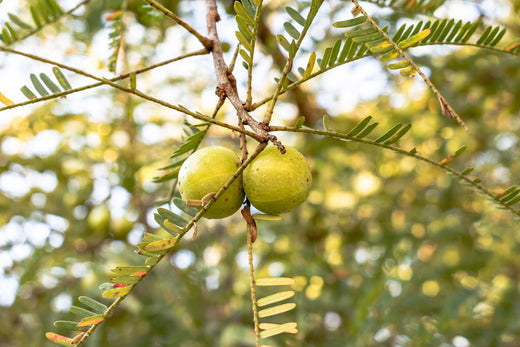
9 Excellent Benefits of Turmeric in Ayurveda & Steps to Use
Turmeric, also known as Curcuma longa, has been an ayurvedic medication for 4,000 years worldwide. This golden-orange spice is also used in cooking to add flavor, color, and nutrition to the food. Apart from that, it also offers various health benefits to individuals and is typically used for beauty treatments.
It is a relative of ginger from the rhizome root of a native Asian plant and is used in ayurvedic both in India and China. It has undoubtedly been used worldwide for thousands of years, but it is a newcomer to the American spice rack. Turmeric or Haridra in Sanskrit tastes bitter, astringent, and pungent.
According to herbal medicine expert Sebastian Pole in his book Ayurvedic Medicine: The Principles of Traditional Practice, the yellow color of Turmeric shows its potent liver cleansing and healing properties. Keeping all these things in mind, let's find out more about turmeric in regard to its benefits validated by scientific studies.
Turmeric Nutritional Information
| Nutrient | Amount per 100g |
|---|---|
| Calories | 354 |
| Protein | 7.8g |
| Carbohydrates | 64.9g |
| Fiber | 22.7g |
| Fat | 9.9g |
| Sodium | 38mg |
| Potassium | 2,525mg |
| Calcium | 168mg |
| Iron | 55mg |
| Magnesium | 193mg |
| Vitamin C | 25.9mg |
| Vitamin E | 3.1mg |
| Vitamin K | 13.4mcg |
| Niacin | 5.1mg |
| Vitamin B6 | 1.8mg |
| Folate | 39mcg |
| Choline | 38.4mg |
| Betaine | 0.2mg |
| Phytosterols | 32mg |
| Carotene, beta | 422mcg |
| Lutein + zeaxanthin | 22mcg |

image source: Image by Antonio Cansino: Pixabay
List of Health Benefits of Turmeric or Golden-Orange Spice
1. It comes with Antimicrobial and Antibacterial Properties
Over the years, turmeric has been used in Indian ayurvedic medication because of its antibacterial and antimicrobial properties. These two properties of this spice boost the immunity of the individual by its daily intake in India and all over the world.
2. Lessens Inflammation
If the individual is suffering from chronic conditions where inflammation starts affecting body tissues, intake of turmeric is very beneficial. In one study, patients with ulcerative colitis who are given 2 grams of curcumin and medication prescribed by a doctor are likely to stay in remission compared to those who have taken the medication alone.
3. Turmeric Increases the Antioxidant Capacity of the Body
If the body gets oxidative damage, the overall mechanism goes down, which is the main reason for aging and various other diseases. Do you know why antioxidants are beneficial for the human body?
It is because they keep the body free from radicals. Here turmeric is essential in neutralizing free radicals because of its chemical structure.
4. Has Anti-Cancer Properties
 Image source: photo by freepik: freepik
Image source: photo by freepik: freepik
According to the report, around 20% of deaths worldwide are due to cancer. Like Tulsi, Several studies regarding turmeric state that it has anti-cancer properties and can easily suppress the growth of many cancer cells.
5. Good for Joints
Curcumin is one of the Phyto-ingredients in turmeric that offers this spice a distinct yellow color. It is also used in dyes for silks and various other fabrics. On the other hand, turmeric is also good for joints while supporting a healthy inflammatory response.
6. Reduces Pain
Turmeric has undoubtedly been used in Chinese and Indian ayurveda for years for treating arthritis. One study shows that if an individual takes turmeric extract, it will potentially reduce pain, but this topic remains a matter of debate till date.
7. Lowers the Risk of Heart Disease
 Image source: Photo by Karolina Grabowska: pexels
Image source: Photo by Karolina Grabowska: pexels
You will be surprised to know that heart disease is the top cause of death in the world. The reason is heart disease is a very complicated illness, and there are a number of things that contribute to it. Here turmeric helps reverse many steps in the heart disease process.
According to experts, the main benefit of taking turmeric for individuals suffering from heart disease is to improve the function of the endothelium. It is the major driver of heart disease, and taking turmeric regulates blood pressure, blood clotting, etc.
Also read:
- Amla and it's uses in daily life
- Interesting Ashwagandha benefits
- Garcina Ayurvedic benefits in genral health
- Wheatgrass benefits and it's uses
8. Aids in Virus Protection
Taking turmeric in low amounts can enhance antibody responses which automatically aids in protecting the body against various types of viruses.
9. Help to Elevate Depression
Some animal studies state that curcumin, a compound found in turmeric, increases serotonin and dopamine, two brain chemicals. These two chemicals affect the person's mood, and intake of them helps you to respond better to any unexpected stress.
Commercial Products of Turmeric
There are a number of products that are made with turmeric. They are: -
- Turmeric Rhizome/ Dried
 Image source: photo by wirestock: freepik
Image source: photo by wirestock: freepik
The shade of turmeric rhizome is orange-brown or pale yellow. If you talk about its composition, it contains 3-15% curcuminoids and 1.5-5% essential oils. This rhizome is used for various medications for diabetic wounds, cardiovascular disorders, cough, and many more.
- Turmeric Powder
Turmeric powder is mainly found in yellow to brown shade, and it contains less amount of curcuminoids and essential oils as compared to rhizome because of exposure to light.
This turmeric product is famous as a spice that offers flavor and color to curries. Along with that, it also contains a number of medicinal properties that benefit the individual's health in many ways.
- Turmeric Oil
It looks the same as turmeric powder, but it varies in composition. That means if the leaves of turmeric are used to produce oil, monoterpenes are dominated, and if the rhizome is used, sesquiterpenes are dominated.
This turmeric oil is an excellent antiseptic agent that helps remove dandruff and eliminates the sign of blemishes and wrinkles.
-
Curcumin
 Image source: Photo by SHVETS production: pexels
Image source: Photo by SHVETS production: pexels
Curcumin looks yellow to orange shade crystalline powder that contains a high amount of curcumin. It helps reduce cholesterol levels, treats ulcers, and detoxifies the liver.
- Turmeric oleoresins
It is a type of liquid that looks dark yellow or reddish brown, including 25% essential oils and 37-55% curcuminoids. This type of turmeric is used as a food coloring agent and has many medicinal properties.
How to Get the Greatest Benefits from the Queen of Spices called Turmeric?
No matter in which form you are taking turmeric, like tea, oil, powder, or in the form of supplements, numerous ways ensure you are getting immediate health benefits.
- Turmeric and Black Pepper
Turmeric is undoubtedly one of the staples in Indian cooking, but it is not used alone. That means it is used with myriad other species like black pepper, coriander, cumin, and many more. However, if you take turmeric alone, it will be poorly absorbed into the bloodstream.
But taken with black pepper enhances the absorption of curcumin by 2,000 percent.
- Turmeric and Fat
Curcumin is the main compound in turmeric found in high amounts and is also fat-soluble. One of the studies states that if an individual consumes curcumin along with fat, it increases its absorption and bioavailability.
Turmeric with Ayurveda
 Image source: Photo by Mareefe: pexels
Image source: Photo by Mareefe: pexels
Turmeric is used in Ayurveda for years to balance three doshas that are vata, pitta, and kapha. If the individual takes turmeric in excess quantity, it can also aggravate pitta and vata, because of which the individual must take it according to dosage.
The ayurvedic experts state that turmeric offers a beneficial effect on rasa dhatu and rakta dhatu, which are the tissues of the blood, plasma, and lymph. When an individual takes turmeric, it delivers soothing and cooling quality to these tissues, along with enlivening their healthy flow and function.
On top of that, the turmeric heating effect enables mobilizing and clean energy that naturally kindles agni called digestion and also helps to reduce excess kapha and toxicity. Besides, turmeric also supports the muscles, liver, joints, skin, and immune system of the person.
If you talk about the significance of turmeric in India, it offers the energy of the Divine Mother to provide prosperity. Moreover, in Indian marriages, it is also used as a topical paste by brides to give a radiant glow and to invite blessings into the marriage.
Also, do check our other herb guides:
Turmeric Supplements & Drug Interactions
If the individual takes, a high dose of turmeric can also interact with certain medications. For example, pain relievers as supplements can lessen the positive effects of ibuprofen, aspirin, and indomethacin.
Apart from that, if you are receiving chemotherapy treatments, ensure to consult your doctor before taking any turmeric supplements or totally avoid them. Additionally, in the case of blood thinners, it can increase the risk of bleeding in individuals having warfarin. Individuals taking tacrolimus can also experience high side effects if you consume high turmeric.
What are the Side Effects of Using Turmeric?
Turmeric is the safest herb for almost every individual when used in tea or food. But if you are allergic to this spice, it may cause rash, abdominal pain, and hives. Moreover, gastrointestinal disturbances are also possible with its chronic use.
The Bottom Line
Finally, now you aware and well versed with some of the benefits of turmeric, the Queen of spices. Turmeric products have been used in various products, cooking and medicinal uses for years. But most importantly, it is very helpful to cure various health problems.
So, no matter what type of disease you are suffering from, turmeric is the best ayurvedic tonic for the best results.





